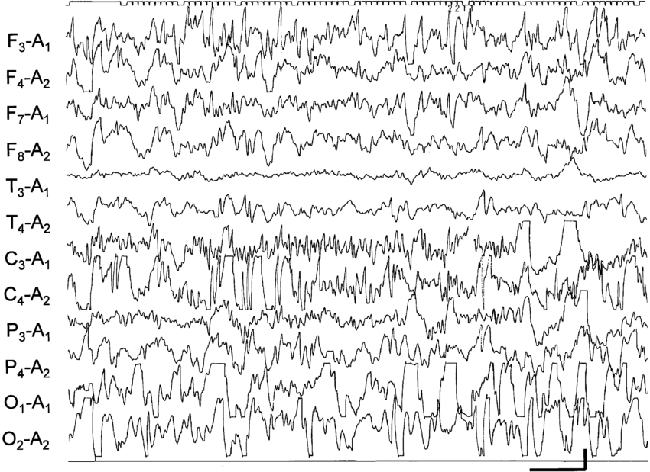What is epilepsy?
Epilepsy is a condition that causes people to have repeated seizures. Seizures are caused by abnormal electrical activity in the brain. Seizures can make you pass out, or move or behave strangely. Epilepsy can start at any age.
What are the symptoms of a seizure?
There are different kinds of seizures. Each causes a different set of symptoms. Most seizures last only a few seconds or minutes.
People who have “tonic clonic” or “grand mal” seizures often pass out, get stiff, and then have jerking movements. Other types of seizures cause less dramatic symptoms. For instance, some people have shaking movements in just 1 arm or in a part of their face. Other people suddenly stop responding and stare for a few seconds.

Sometimes, people can tell that they are about to have a seizure. They have a certain feeling or smell a certain smell. This feeling or smell is called an “aura.”
Will I need tests?
Yes. You will probably have 1 or both of the following:
- EEG – An EEG measures electrical activity in the brain.

- CT or MRI scan – These tests create pictures of the brain.
How is epilepsy treated?
Epilepsy is treated with anti-seizure medicines. These medicines can’t cure epilepsy, but they can help prevent seizures. There are different anti-seizure medicines. The right one for you depends on your seizures and other factors.
Anti-seizure medicines usually work well to control seizures. But if they don’t control your seizures, your doctor might talk with you about other possible treatments. These can include:
- Brain surgery
- A device called a “vagus nerve stimulator” that goes in your chest to help control seizures
What should I know about anti-seizure medicines?
You should know that:
- These medicines can cause side effects. They can make you feel tired or dizzy, or cause other problems. Let your doctor know about any side effects you have. That way, the two of you can find the best medicine and dose for you.
There are 2 rare side effects that can be very serious. Let your doctor know right away if you get a new rash or feel like hurting yourself. - Anti-seizure medicines can affect other medicines you take. Plus, other medicines can keep your anti-seizure medicine from working well. Let your doctor know if you start any new prescription or non-prescription medicines, including birth control pills. Anti-seizure medicines can keep birth control pills from working well. This can lead to an unplanned pregnancy.
- You might need regular blood tests to check the amount of anti-seizure medicine in your body.
Will I need anti-seizure medicine for the rest of my life?
It depends on your seizures. If you don’t have any seizures for 2 years, your doctor might talk with you about stopping your medicine. But don’t ever stop your medicine on your own.
How can I lower my chances of having more seizures?
To lower your chances of having more seizures, you can:
- Take your medicine exactly as directed
- Get enough sleep – Not getting enough sleep raises your chances of having a seizure.
- Eat a healthy diet
- Avoid drinking alcohol or using drugs
Can I drive if I have epilepsy?
Each state and country has its own rules. Before you can drive again, you will probably need to be seizure-free for a certain amount of time. You might also need to get your doctor’s permission.
What if I want to get pregnant?
Talk with your doctor before you get pregnant. He or she might change your medicine or prescribe a vitamin called folate. But don’t ever stop your medicine on your own.
When should I call my doctor or nurse?
Your doctor will make a plan with you that tells you when to call him or her. In general, call your doctor or nurse if you have more seizures than usual or your seizures last longer than usual.
Some seizures are a medical emergency. If your seizure lasts longer than 5 minutes or if you have repeated seizures over a few minutes, the person with you should call emergency .
What else should I do if I have epilepsy?
You should:
- Wear a medical bracelet to let others know about your epilepsy.
- Let family members and friends know how to help you if you have a seizure. They can position you so that you will not hurt yourself, but they should not put anything in your mouth. They should time your seizure and call 9-1-1 if it lasts longer than 5 minutes.